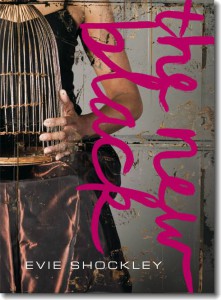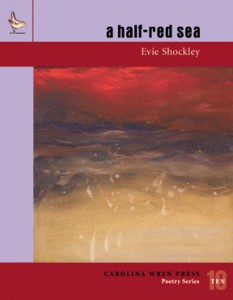|
|
the new blackA profound and uplifting meditation on the meanings of race and belonging in America “Evie Shockley’s the new black is our contemporary passage through a mosaic of historical and literary constructions. This stunning collection remembers all that has moved through the black body to bring us into the 21st century; and not since Jean Toomer’s Cane has the black female body in particular been portrayed with such compassion and love. This formally inventive work makes signifyin’ its casting call, as Shockley becomes the master “composer of genealogies.”—Claudia Rankine, author of Don’t Let Me Be Lonely: An American Lyric “In these remarkable new poems Evie Shockley seems to step to us wearing an alluring silk gown and steel-toe guerilla boots! She possesses that rare combination of grace and subversiveness. As a poem like ‘x marks the spot’ demonstrates, she elegantly wrestles with/against staid notions of culture, identity and influence. Her synthesis of poetic styles (the sonnet, the epistle, the tarot, the diagram) produces a poetry that is recognizable and strange, engaging and revolutionary. the new black is a book of stunning urgency and invention.”—Terrance Hayes, author of Lighthead |
|
|
a half-red sea“Evie Shockley gives us, beautifully, the sound of justice, the voice of *aware* (Afro) America, and the soul music of consciousness. In these unapologetically excellent, astonishingly sensual, whimsically political, and fiercely personal poems, Shockley uses the moral clarity of history to reveal how foolish we become when we forget our roots.” —George Elliott Clarke “Evie Shockley isn’t waiting for the waters to part; her words work their own miracles. Read them and feel free. Read them, too, and beware: the world is wicked. As the poet says, evil is clever. But Evie is more clever. The very forms of her poems are a whack back at fate. Their sounds unshackle us. Egypt to the right, Cannan ahead,—each line speaks a bridge into being.” —Joseph Donahue “Evie Shockley’s poetry is a vortex, a delta where a hundred streams meet and deposit their rich traffic. In one poem she channels the past, relaying conversations between ancestral women; in another she telegraphs the future, holding a thousand words in a single tortured frame. Shockley is a single voice and a whole choir; now she speaks, now she sings, now she writes; all the while she signifies and she languages.” —David Kellogg “In a half-red sea, Evie Shockley is ‘dreaming the lives of the ancestors.’ Navigating against prevailing currents, these poems sail on eddy and backflow, taking inspiration from knots and twists of American history and culture. Whether improvising between the lines of a slave narrative in ‘henry bibb considers love and livery,’ amplifying Lady Day’s most devastating blues in ‘you can say that again, billie,’ or going freestyle with ‘double bop for ntozake shange,’ Shockley’s imagination travels every which away. Her gallery of lyric portraits presents a historical continuum of African Americans caught in double binds of culture and identity, from Crispus Attucks, Phillis Wheatley, Sally Hemmings, and Henry Bibb, to Billie Holiday, Miles Davis, and Anita Hill, along with engaging fictional characters such as Trula, Yellow Mary’s enigmatic companion in Julie Dash’s Daughters of the Dust. In ‘a thousand words’ and other reflections on contemporary events, Shockley’s firm grounding in history adds weight and depth to her observations of the recent past and present.” —Harryette Mullen |


